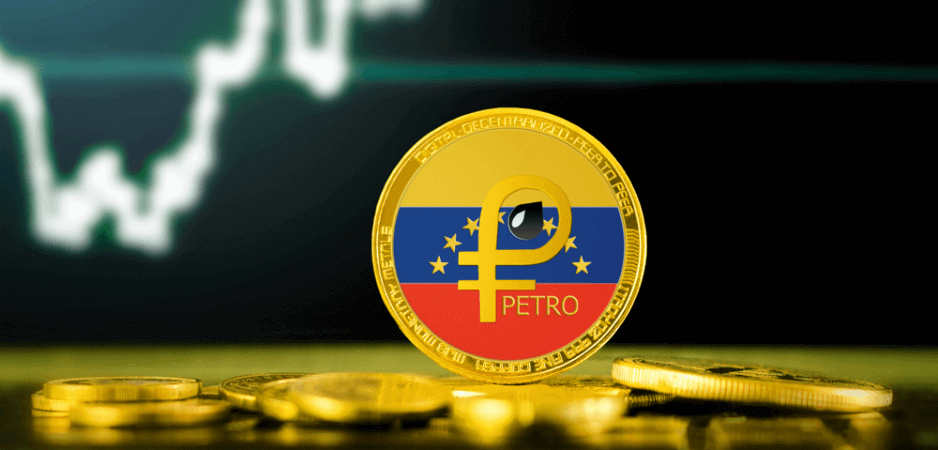America’s implementation of wider sanctions will serve to help, not hurt, its adversaries, all while putting its allies under economic pressure.
As the Trump administration continues to deliver its “America First” agenda regardless of collateral damage, it is perhaps unsurprising that the US president is now taking a wrecking ball to the country’s foreign policy. The latest development involves a call by Washington on the Organization of American States (OAS) to suspend Venezuela’s membership and implement a fresh wave of sanctions, following a controversial leadership election in May that saw President Nicolás Maduro returned to power for another term.
In its haste to find quick fixes for entrenched geopolitical challenges, however, Washington risks undertaking a dangerous course of action that could end up backfiring. By bolstering America’s sanctions regime — against Iran, in addition to Venezuela — Trump may well end up diluting US influence rather than strengthening it. There are three main reasons why the US government should hit the stop button on punitive sanctions.
The first is financial. Simply put, if Washington begins to wield sanctions as a way of waging economic warfare, it will only weaken the global case for retaining the dollar as the world’s de facto reserve currency. The perceived overuse of sanctions — especially without adequate justification — may encourage businesses to look for ways to avoid the US financial system, eventually eroding the dollar’s cachet.
After all, though more than half of all global cross-border debt is currently dollar-denominated, only as long as the dollar retains its pre-eminence in the global financial system will the US be in a position to continue throwing its weight around. As US sanctions bite, it becomes increasingly likely that other nations will choose to mitigate risk by bypassing the dollar altogether, switching instead to alternative currencies.
Indeed, this has already begun to happen. Russia is currently developing its own payments system to circumvent the established SWIFT funds transfer. Both China and Russia are trading goods in local currencies, with others starting to follow suit. Earlier this year, for instance, Germany’s central bank announced that it will now include renminbi in its currency reserves.
The second problem is that sanctions are often misdirected, in that they harm the target nation’s ordinary citizens as opposed to its government. In Venezuela in particular, the ruling elite is far removed from the general population and highly unlikely to put the needs of ordinary people above government ambition — let alone above their own personal interests. And recent history demonstrates the fact that, under the threat of siege, leaders are often able to further consolidate their position by posturing as bravely resisting the tyranny of international interference.
As a case in point, 12 months after sanctions were first applied against Venezuela, Maduro appears more entrenched in power than ever. The more America turns the screws, the more strident the president’s anti-imperialist position becomes and, thus, the more legitimized in the eyes of the nation.
Meanwhile, there’s little more America can do to attack Venezuela’s regime without causing even more hardship for its citizens. Imposing further sanctions may yield moderate results, but only at the expense of the Venezuelan people who are already living through a terrible humanitarian crisis, complicated by the world’s worst hyperinflation (estimated at more than 13,000%) in what was once the richest country in Latin America.
The third problem is double-edged: America’s implementation of wider sanctions will serve to help, not hurt, its adversaries, all while putting its allies under economic pressure. For instance, simultaneous sanctions against Iran and Venezuela could well upset a delicately balanced oil market. Venezuelan oil exports to energy-hungry Asian consumers have plummeted in recent years due to the near-collapse of the state-run oil company, coupled with the constrictive effect of US sanctions. If Venezuelan oil becomes even more difficult to acquire, the pressure on big hitters — like China and India — to circumvent the sanctions in Iran will be considerable, possibly via illicit trades transacted in local or cryptocurrencies.
Likewise, the boycott is set to deliver an unwitting windfall to America’s economic and political rivals, just as its European allies are calculating the cost to business of Trump’s latest decision to reopen sanctions on Iran. Ironically, as secondary sanctions force European companies to pull out of negotiations to help Iran revive its oil fields, fresh opportunities will be created for Russian and Chinese companies already operating in the Middle East; China, for instance, has recently announced a new rail connection with Iran.
The Trump administration has already exacerbated global tensions through a series of ill-considered foreign policy decisions. The latest wave of unilateral actions could result in negative repercussions, not just for US rivals and allies, but for America itself. If Washington really wants to accomplish its goals, it must avoid implementing a knee-jerk sanctions strategy and put more emphasis on the powers of diplomacy. After all, sanctions are only one tool in what should be a far more carefully calibrated, wide-ranging set of policies against hostile regimes.
The views expressed in this article are the author’s own and do not necessarily reflect Fair Observer’s editorial policy.
Photo Credit: AlekseyIvanov / Shutterstock.com
Support Fair Observer
We rely on your support for our independence, diversity and quality.
For more than 10 years, Fair Observer has been free, fair and independent. No billionaire owns us, no advertisers control us. We are a reader-supported nonprofit. Unlike many other publications, we keep our content free for readers regardless of where they live or whether they can afford to pay. We have no paywalls and no ads.
In the post-truth era of fake news, echo chambers and filter bubbles, we publish a plurality of perspectives from around the world. Anyone can publish with us, but everyone goes through a rigorous editorial process. So, you get fact-checked, well-reasoned content instead of noise.
We publish 3,000+ voices from 90+ countries. We also conduct education and training programs
on subjects ranging from digital media and journalism to writing and critical thinking. This
doesn’t come cheap. Servers, editors, trainers and web developers cost
money.
Please consider supporting us on a regular basis as a recurring donor or a
sustaining member.
Will you support FO’s journalism?
We rely on your support for our independence, diversity and quality.








Commenting Guidelines
Please read our commenting guidelines before commenting.
1. Be Respectful: Please be polite to the author. Avoid hostility. The whole point of Fair Observer is openness to different perspectives from perspectives from around the world.
2. Comment Thoughtfully: Please be relevant and constructive. We do not allow personal attacks, disinformation or trolling. We will remove hate speech or incitement.
3. Contribute Usefully: Add something of value — a point of view, an argument, a personal experience or a relevant link if you are citing statistics and key facts.
Please agree to the guidelines before proceeding.